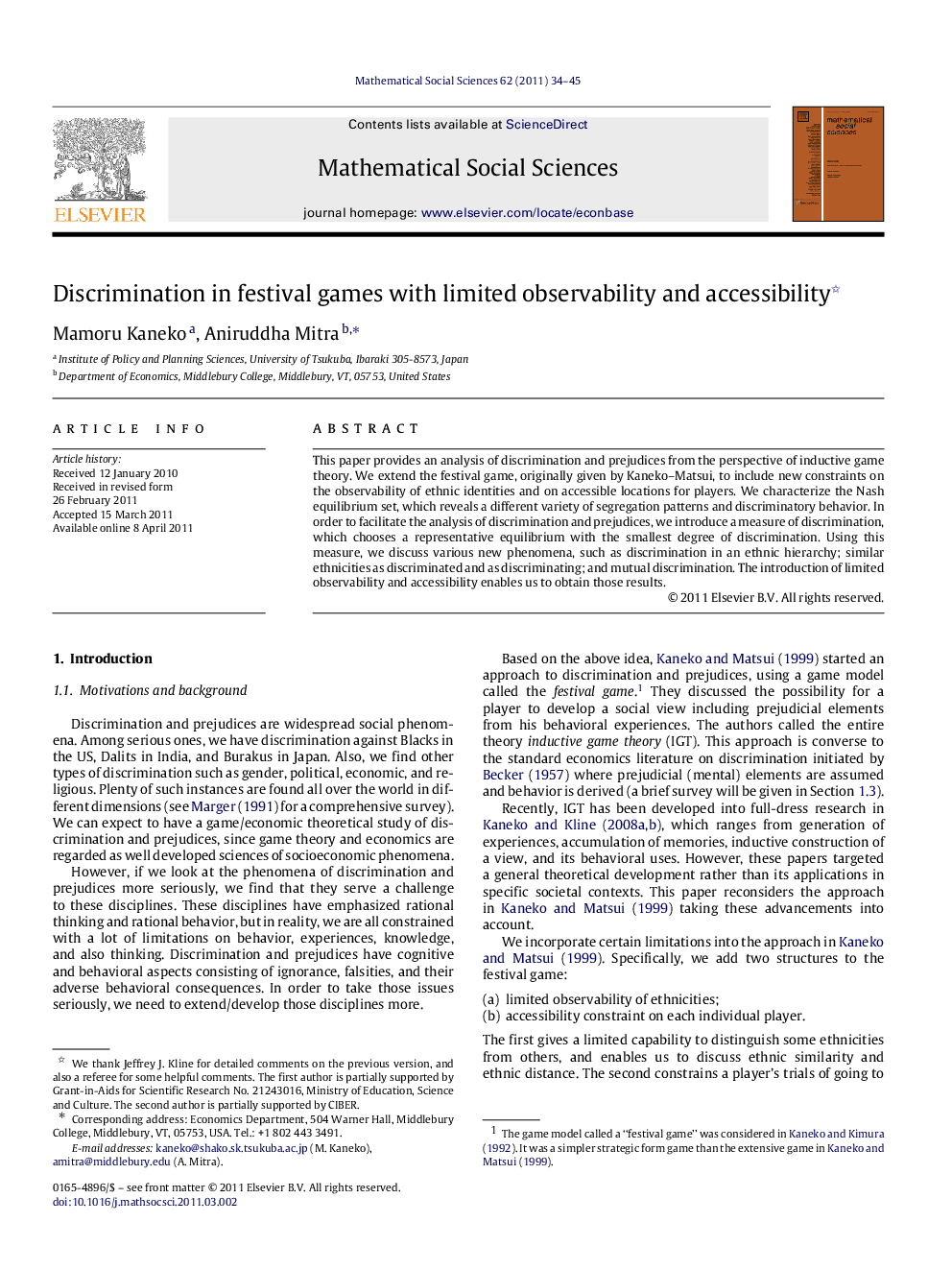| Article ID | Journal | Published Year | Pages | File Type |
|---|---|---|---|---|
| 972262 | Mathematical Social Sciences | 2011 | 12 Pages |
This paper provides an analysis of discrimination and prejudices from the perspective of inductive game theory. We extend the festival game, originally given by Kaneko–Matsui, to include new constraints on the observability of ethnic identities and on accessible locations for players. We characterize the Nash equilibrium set, which reveals a different variety of segregation patterns and discriminatory behavior. In order to facilitate the analysis of discrimination and prejudices, we introduce a measure of discrimination, which chooses a representative equilibrium with the smallest degree of discrimination. Using this measure, we discuss various new phenomena, such as discrimination in an ethnic hierarchy; similar ethnicities as discriminated and as discriminating; and mutual discrimination. The introduction of limited observability and accessibility enables us to obtain those results.
► An approach to discrimination is developed from the perspective of inductive game theory. ► We adopt the festival game with limited observability of ethnicities and accessible locations. ► Nash equilibrium is interpreted as a social custom in the recurrent situation of the festival game. ► Nash equilibria typically involve some segregation of ethnicities supported by discrimination. ► We introduce a discrimination measure and use it to explore a variety of discriminatory phenomena.
